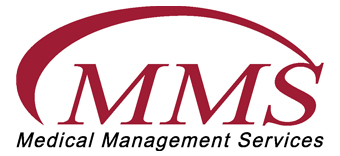The End of Offshore Billing?
How U.S. Practices Are Reclaiming Revenue and Control
The Changing Tide: Why Medical Practices Are Bringing Billing Back to the U.S.
In recent years, the medical billing landscape has undergone a dramatic shift. Once hailed as a cost-saving revolution, offshore billing and coding services are now facing growing scrutiny from U.S. medical practices. The tide is turning, with more providers reversing course and seeking the reliability, compliance, and service quality offered by domestic billing partners. In this newsletter, we’ll explore why this reversal is happening, what practices are experiencing with offshore vendors, and how U.S.-based billing services are reasserting their value.
A Brief History: The Offshore Boom
The allure of offshore medical billing was simple: lower costs. As labor expenses rose in the U.S., many billing companies and medical practices looked abroad for solutions. Countries like India and the Philippines developed large, skilled workforces dedicated to U.S. healthcare billing, promising 24/7 operations and scalable teams at a fraction of domestic rates.
But as the industry matured, cracks began to show. What started as a quest for efficiency and savings has, for many, led to frustration, compliance headaches, and a renewed appreciation for local expertise.
The Reality of Offshore Billing: Hidden Costs and Unhappy Clients
1. Productivity and Accuracy Challenges
While offshore teams can process claims around the clock, many practices report that they require more full-time equivalents to manage the same patient volume compared to U.S.-based services. This is due to lower productivity, increased error rates, and the need for more oversight. The result? More time spent on auditing, training, and reworking denied claims—ultimately eroding the anticipated savings.
2. Compliance and Security Risks
HIPAA compliance is non-negotiable in U.S. healthcare. Unfortunately, offshore vendors often struggle to keep pace with evolving regulations. The 2013 HIPAA Omnibus Rule made it clear: providers are responsible for any violations by their offshore partners, even if those partners are beyond the reach of U.S. law. This exposes practices to significant legal liability and potential fines.
Sharing sensitive patient data overseas also increases the risk of data breaches. Offshore companies may lack robust security protocols or the cultural familiarity with U.S. privacy expectations, leaving practices vulnerable.
3. Communication Barriers and Service Delays
Time zone differences and language barriers can slow down resolution of billing issues. When a claim is denied or a coding question arises, practices may wait hours—or even days—for a response. These delays disrupt cash flow and frustrate both staff and patients.
4. Quality of Service and Patient Experience
Medical billing is not just about numbers; it’s about understanding the nuances of U.S. healthcare, payer rules, and patient expectations. Offshore teams, no matter how skilled, often lack the context to handle complex appeals, communicate with patients, or adapt to local insurance mixes. Practices report that offshore vendors struggle with high-level appeals, credentialing, and the subtle details that make or break revenue cycle management.
5. Turnover and Continuity
Employee turnover rates are significantly higher in offshore environments, where medical billing is often seen as a stepping stone rather than a career. This creates instability, disrupts workflows, and increases onboarding time for new coders.
The Numbers Don’t Lie: Cost Savings Aren’t Always What They Seem
On paper, offshore billing can cut costs by 30–50% compared to domestic services. But when factoring in the hidden expenses—quality control, compliance monitoring, error correction, and lost revenue from denials—the actual savings often fall short.
A case study from a U.S.-based provider found that while offshore billing reduced direct costs from 7% to 4% of collections, the increased denial rates and rework time offset much of the initial savings. In some cases, practices lost more in underpayments and delayed reimbursements than they saved on labor.
Multiple Procedure Coding Errors: The Silent Revenue Killer
If your ASC does a lot of surgeries—like in orthopedics or GI—you probably bill for more than one procedure at a time. But if your coders use the wrong modifiers, or forget them, you could get paid less or not at all.
Example: Using CPT modifiers 51 and 59 in the wrong order, or missing them, means you lose money.
How MMS Fixes It:
Our expert coders know the right rules for every specialty and payer. We make sure your codes and modifiers are always correct, so you get paid what you deserve.
The Reversal: Why Practices Are Coming Home. Hint: It may be a cliché but it is true: You Get What You Pay For!
1. Regaining Control and Accountability
With domestic billing partners, practices enjoy greater transparency, immediate access to support, and a shared understanding of U.S. healthcare’s complexities. Local billers are accountable to U.S. laws and can be held responsible for compliance failures—a level of assurance that offshore vendors simply cannot match.
2. Protecting Patient Data
Keeping billing operations stateside reduces the risk of HIPAA violations and data breaches. U.S.-based billers are subject to rigorous security standards and regular audits, providing peace of mind for both providers and patients.
3. Enhancing Service Quality
Domestic billing teams understand local payer requirements, insurance mixes, and patient demographics. They can handle high-level appeals, communicate effectively with patients, and adapt quickly to regulatory changes. This leads to higher first-pass payment rates, fewer denials, and a smoother revenue cycle.
4. Supporting American Jobs
Beyond compliance and service, many practices are motivated by a desire to support the U.S. workforce. Bringing billing back home creates stable, meaningful jobs and strengthens the healthcare ecosystem.
Multiple Procedure Coding Errors: The Silent Revenue Killer
If your ASC does a lot of surgeries—like in orthopedics or GI—you probably bill for more than one procedure at a time. But if your coders use the wrong modifiers, or forget them, you could get paid less or not at all.
Example: Using CPT modifiers 51 and 59 in the wrong order, or missing them, means you lose money.
How MMS Fixes It:
Our expert coders know the right rules for every specialty and payer. We make sure your codes and modifiers are always correct, so you get paid what you deserve.
What to Look for in a U.S.-Based Billing Partner
Industry Voices: What Practices Are Saying
We thought we’d save money by going offshore, but the increased denials and compliance headaches just weren’t worth it. We’re much happier with a U.S.-based team that understands our needs.” — Practice Administrator, Midwest Cardiology Group
Offshore vendors promised the world, but couldn’t deliver on complex appeals or patient calls. We lost revenue and spent more time fixing mistakes than we did before.







